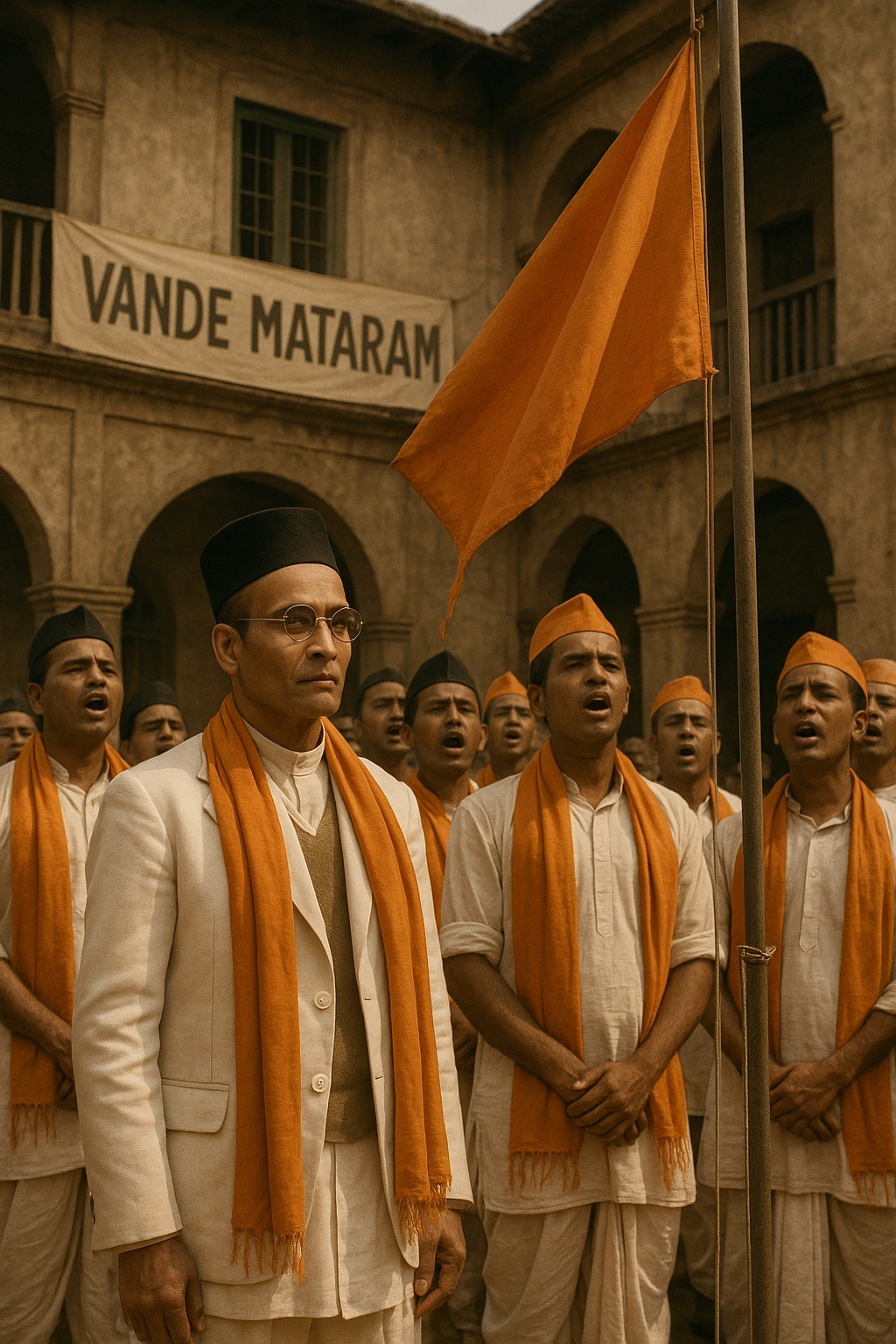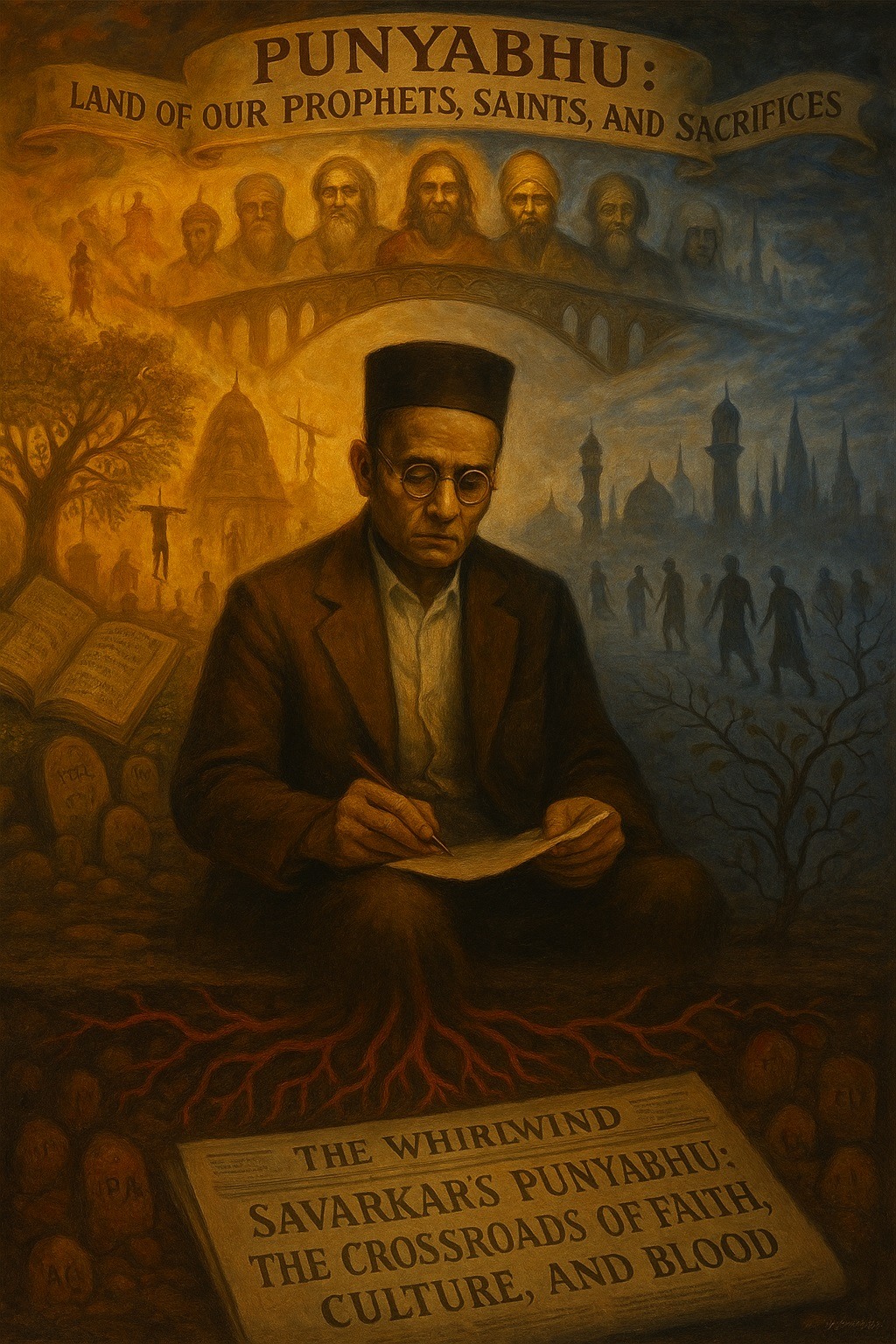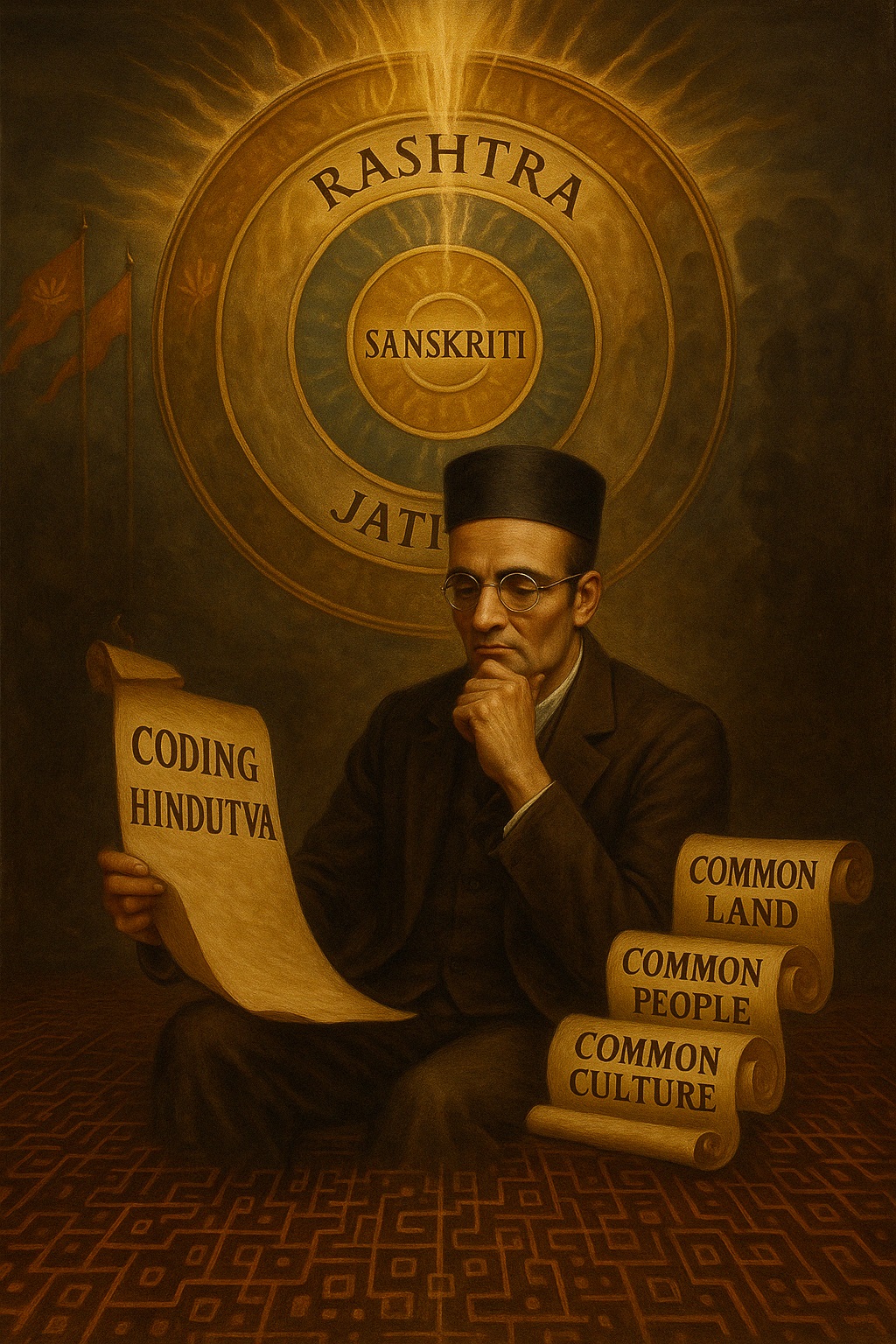Tag: Sanskriti
-
Every year, 7 September is observed as Vande Mataram Day, commemorating the pivotal role of this iconic song in India’s struggle for independence. The date recalls the decision of the Indian National Congress (INC) in 1905 to adopt Vande Mataram at the height of the Swadeshi Movement against the Partition of Bengal. More than a…
-
Savarkar’s Philosophy & Worldview, Part 7; Savarkar’s Agnosticism (4/4) In the ongoing exploration of Vinayak Damodar (Veer) Savarkar’s agnosticism, one of the most intriguing and misunderstood concepts is his use of the term Punyabhu or Punyabhumi, often translated as “Holy Land.” This term has sparked significant debate, with both critics and supporters misinterpreting its meaning.…
-
Savarkar’s Philosophy & Worldview , Part 7; Savarkar’s Agnosticism, (3/4) In the ongoing exploration of Vinayak Damodar (Veer) Savarkar’s agnosticism, one of the most intriguing and misunderstood concepts is his use of the term Punyabhu or Punyabhumi, often translated as “Holy Land.” This term has sparked significant debate, with both critics and supporters often misinterpreting…




